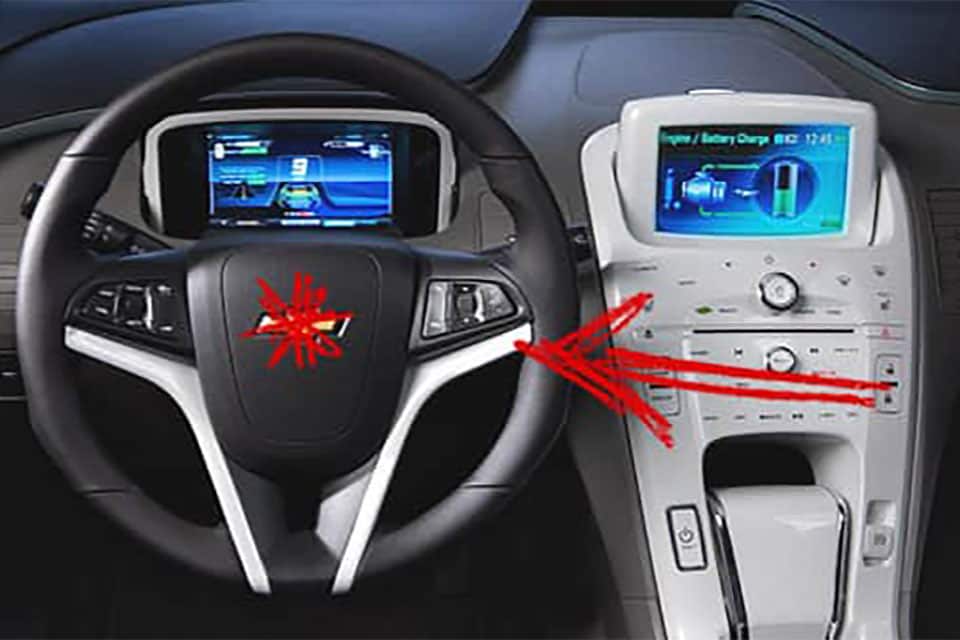3 Things to Know About Chevy Volt Steering Problems
- A class-action says GM has ignored dangerous steering issues in the Volt
- The Volt's steering wheel can lockup after extended driving on a straight road.
- GM hasn't offered much more than band-aid fixes.

GM's Chief Technology Officer, Jon Lauckner, recently called the first edition Volt a "moon shot." Maybe they should have fired the electric car to the moon and kept it there all along.
After years of power management related complaints, a new class-action lawsuit alleges that General Motors has also ignored dangerous steering problems that can leave drivers without any control over their car. Here's 3 things to know about the problem.
Loose Steering and Steering Lockup ∞
Owners report that the Volt can experience loose steering like that really beat-up bumper car at the state fair. You know the one -- it's missing half its paint and you just watched the previous driver spend the entire time in the corner by himself hopelessly turning the wheel. But at least bumper cages are constrained, loose steering on the highway can lead to all sorts of drifting and is especially dangerous at faster speeds.
But loose steering isn't the only problem, in fact things can get much worse when you a long straight-away.
Plaintiffs in the class-action lawsuit say that if you leave the steering wheel centered for too long the wheel can lockup in that center position and make the car very difficult to turn. That's probably not a problem on a Kansas highway -- sorry Kansas, your highways are mind-numbingly straight and boring -- but anywhere else that can get you in a real pickle. And not a good pickle ... more like a gas station pickle.
A First-Generation Problem (So Far) ∞
The lawsuit focuses on the first-generation Volt (2011-2014), the aforementioned "moon shot."
The plaintiffs allege that GM should have known about the steering defect based on pre-release testing data, early consumer complaints to GM, consumer complaints to the National Highway Traffic Safety Administration (NHTSA) and resulting notices from the agency, dealership repair orders, testing conducted in response to consumer complaints, and other internal sources.
Furthermore, they say this steering defect affects the resale value of their car. I agree; I wouldn't buy a first generation Volt after hearing about this problem, would you?
Chevrolet's Repairs Are Nothing More Than a Cheap Bandaid ∞
The lawsuit goes on to say that any repairs done at a GM facility are temporary and only meant to "fix" the problem through the warranty period by using similar parts that are bound to fail.
"GM implemented this temporary and illusory fix to ensure that the Steering Defect occurs outside of the warranty period so that Defendants can unfairly shift financial responsibility for the Steering Defect to Plaintiffs and Class Members."
I know, I know -- I can see some of you rolling your eyes over this conspiracy theory. But after a 2014 that saw the automaker issue 84 recalls affecting over 30.4 million vehicles, it's not a stretch to say GM repair shops are overwhelmed right now and possibly not able to make perfect repairs.
Generations Where This Problem Has Been Reported
This problem has popped up in the following Chevrolet generations.
Most years within a generation share the same parts and manufacturing process. You can also expect them to share the same problems. So while it may not be a problem in every year yet, it's worth looking out for.
1st Generation Volt
- Years
- 2011–2015
- Reliability
- 37th out of 80
- PainRank™
- 4.81
- Complaints
- 54